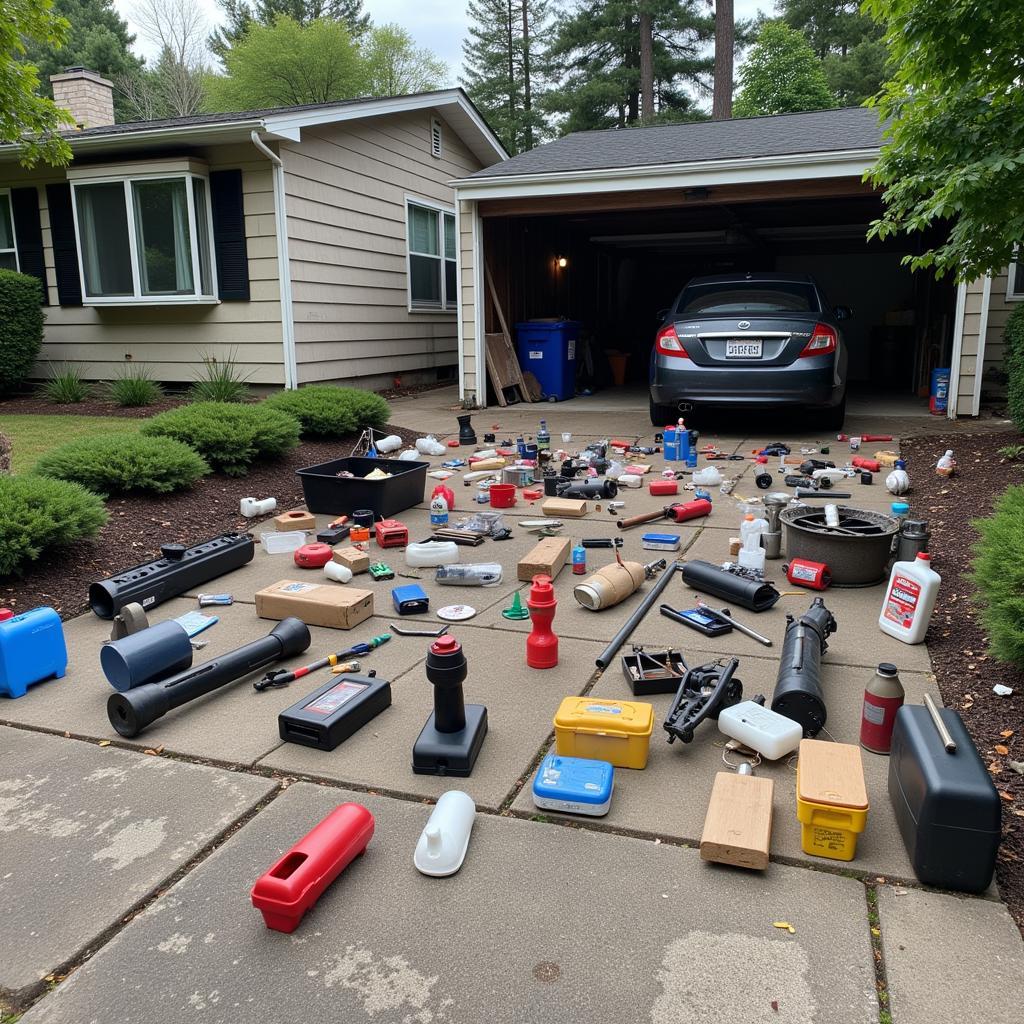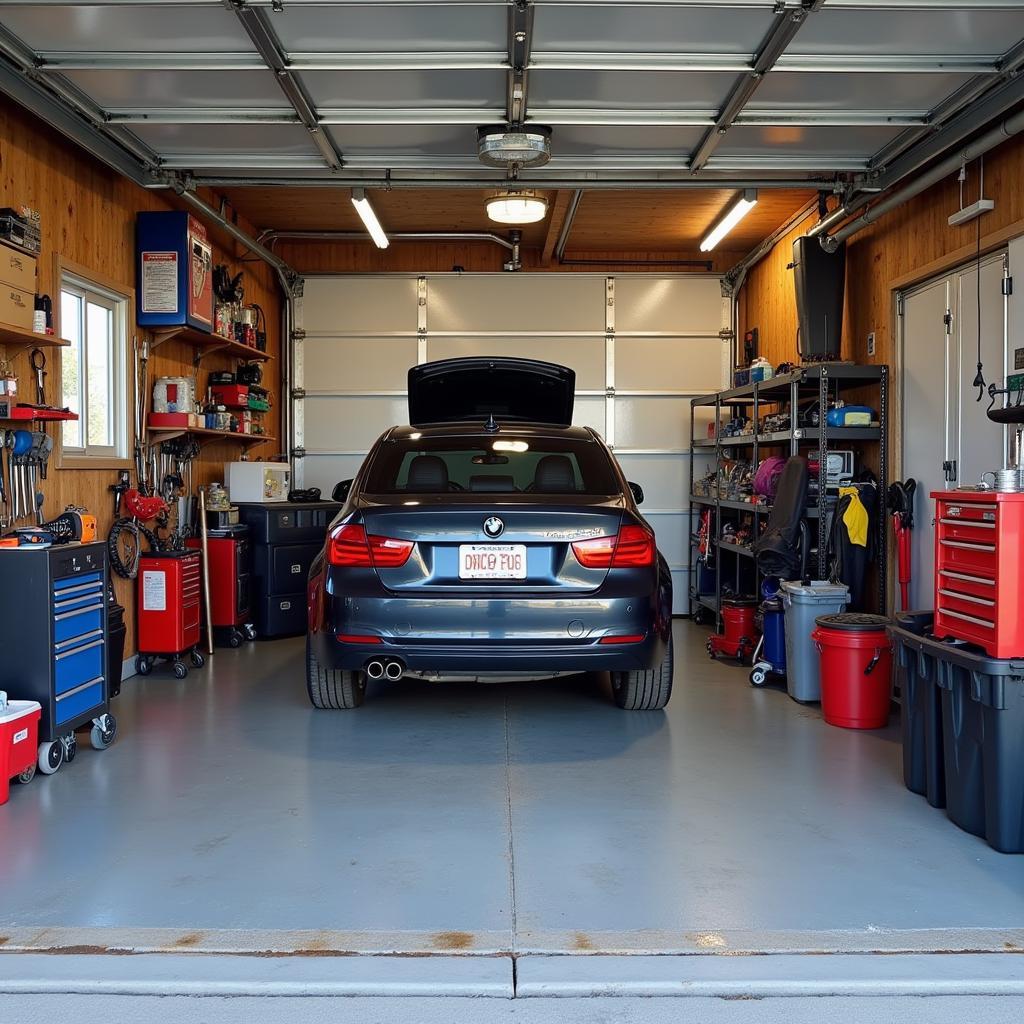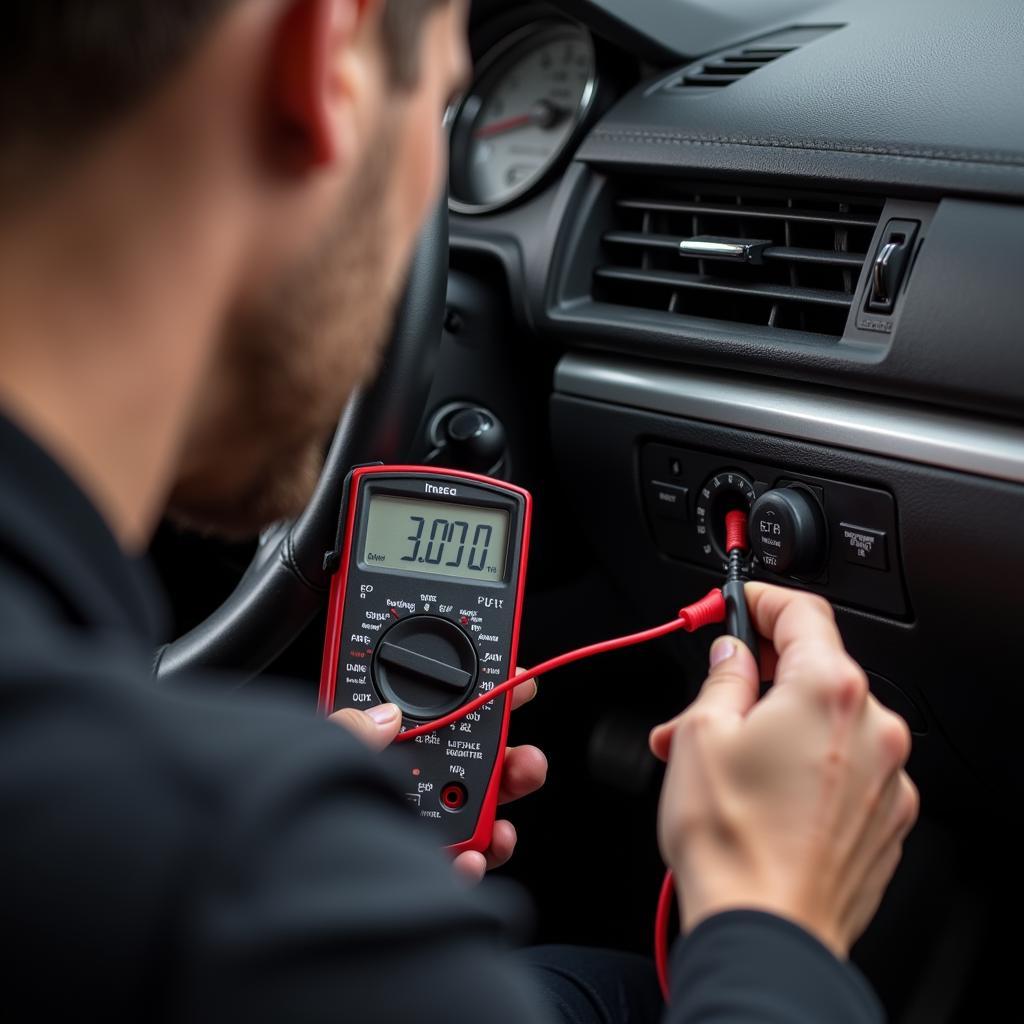Owning a home with a homeowners association (HOA) often comes with a set of rules and regulations designed to maintain a certain aesthetic and standard within the community. These rules can extend to what you can and can’t do on your property, including car maintenance in your driveway. While the specifics can vary significantly between different HOAs, understanding the general guidelines and how to work within them can help you avoid potential conflicts and keep your car in top shape.
Why HOAs Regulate Car Maintenance
HOAs typically regulate car maintenance on driveways to preserve property values and ensure a visually appealing neighborhood. Leaving car parts scattered, storing fluids improperly, or conducting extensive repairs can be seen as eyesores and potentially hazardous.
 Car Parts Scattered on Driveway
Car Parts Scattered on Driveway
Common HOA Restrictions on Car Maintenance
Before you pop the hood and get to work, it’s crucial to familiarize yourself with your HOA’s specific rules regarding vehicle maintenance. You can typically find this information in the covenants, conditions, and restrictions (CC&Rs) document provided when you purchased your property. Here are some common restrictions you might encounter:
- Types of Vehicles: Some HOAs have restrictions on the type of vehicles allowed, such as RVs, boats, or commercial vehicles, even for temporary parking.
- Visible Fluids: Leaving oil, coolant, or other automotive fluids on the driveway is generally frowned upon. Be sure to clean up any spills promptly and use drip pans when necessary.
- Extensive Repairs: Major repairs that involve disassembling large portions of the vehicle are often prohibited. This helps maintain the aesthetic appeal of the neighborhood and prevents potential hazards.
- Storage of Parts and Tools: Leaving car parts, tools, or equipment scattered on your driveway for extended periods is typically against HOA regulations.
- Noise Restrictions: Operating loud power tools or engaging in noisy repair activities may be subject to time constraints to minimize disruption to neighbors.
Tips for Car Maintenance Within HOA Guidelines
Maintaining your car while adhering to HOA rules doesn’t have to be overly restrictive. Here are some helpful tips:
- Review Your CC&Rs Carefully: Thoroughly read your HOA’s CC&Rs to understand their specific rules and regulations regarding car maintenance.
- Communicate with Your HOA: If you’re unsure about a particular repair or maintenance task, it’s always best to err on the side of caution and consult with your HOA board. Open communication can help you avoid potential violations and maintain a positive relationship with your HOA.
- Maintain a Clean and Orderly Workspace: Keep your work area tidy and organized. Avoid leaving tools, parts, or fluids out in the open for extended periods. A clean workspace is less likely to draw attention or raise concerns.
- Dispose of Fluids Properly: Never pour used oil, coolant, or other automotive fluids down the drain. Use appropriate containers for storage and disposal, and check with your local waste management facility for proper recycling or disposal options.
- Be Mindful of Noise: Limit noisy repair activities to reasonable hours. Avoid early mornings, late nights, or weekends when noise is more likely to disturb your neighbors.
- Consider Alternative Locations: For extensive repairs or maintenance tasks that may violate your HOA’s rules, consider using your garage or finding an alternative location off-site, such as a friend’s house or a reputable mechanic’s shop.
 Organized Car Maintenance in Garage
Organized Car Maintenance in Garage
“Transparency is key,” says John Miller, an experienced HOA board member in Austin, Texas. “Most HOAs are understanding when residents communicate their car maintenance needs and work within the established guidelines. We want residents to take pride in their vehicles while also respecting the community standards.”
Finding Common Ground
Remember that HOA rules are intended to benefit the entire community. By understanding and respecting these guidelines, you can maintain your vehicle while preserving the aesthetic and value of your neighborhood. If you encounter challenges or have specific concerns, open and respectful communication with your HOA board is crucial. Finding a compromise that addresses both your needs and the community’s interests is often achievable with a collaborative approach.
Need help navigating your HOA’s car maintenance regulations? Contact AutoTipPro at +1 (641) 206-8880 or visit our office at 500 N St Mary’s St, San Antonio, TX 78205, United States. We’re here to help you keep your car in top shape while staying on the right side of your HOA.






Leave a Reply